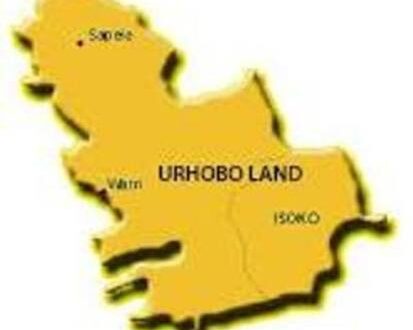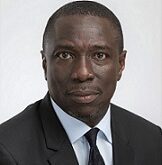By Young Erhiurhoro
The above subject, to some, is quite disturbing and distractive, while to others, it’s very interactive and controversial. This is why the reader should give it the needed attention to bring out the literary beauty in the article to restructure the Urhobo traditional institutions of monarchies and royal stools in order to achieve their set goals as the custodians of the people, promoters of the people’s cultural heritage and protectors of traditional beliefs and cultural values in Urhobo land.
Urhobo is a distinct and unique ethnic group in Nigeria. In the same way, it’s a distinct tribal group with verse and universal linguistic and communicative affluence. Urhobo at the moment, has 24 kingdoms and kings separately and independently recognized by the Delta state government. This is unlike some ethnic groups in the country that has one king as a paramount ruler of the ethnic group while other monarchs would be recognized as subordinates. The Itsekiri ethnic group for instance, accept the Olu of Warri as the paramount ruler of the Itsekiri people while other ones may be regarded as subordinate kings. It’s the same with the Benin kingdom and the Yoruba ethnic nationality. In the case of Urhobo, each king in each kingdom is a paramount ruler. No one is greater or higher than the other amongst the 24 kings in the Urhobo nation. They are all equal in the aspect of the Delta state chieftaincy and traditional laws or edicts.
Another unique area of the Urhobo ethnic group is that, each of the kingdom has its own ways or processes of ascension into the traditional throne. It’s not the same process or way in all the kingdoms making the Urhobo ethnic group. The process of ascension in Uvwie kingdom is quite different from the process in Okpe kingdom and vice versa. Again, almost the 24 kingdoms of the Urhobo ethnic group were well established by our forebears long before the advent of Christianity in Urhobo land. This is why the processes of ascension are all based on traditional settings, rather than Christian or English settings.
However, all the ascension processes and ways amongst the 24 kingdoms is centred on a particular feature. That’s rituals and rites. It’s glaring to note that, the Urhobo traditional institutions of our monarchical stools are built on traditional worship based on certain eponymous deities. Each of the Urhobo kingdom has this basic cultural feature. As an Urhobo monarch, you are bound to offer prayers and sacrifices to these eponymous deities in the shrines where they are housed. Not only this, as soon as a new king is chosen by the king makers and elders in the royal family or the community, there are certain rituals and rites that must be observed and performed by the king makers and the ones the new king will also perform in the presence of these king makers and elders. No doubt, there is no Urhobo kingdom that is not upholding this cultural obligation till today.
Importantly, there are some of these eponymous deities that are located in strategic places in the community. There are some that are planted in the king’s palace. As custodian of the people’s culture, the king must pay allegiance to these eponymous deities by worshipping them at different times of the year. There are some especially those in the palace he would pour libations to everyday. Outside these shrines in the palace, the king must also have an ancestral hall where his ancestral forefathers are worshipped from time to time. In fact, these are well laid down religious apparatus before the advent of Christianity in Urhobo land. Urhobo are religious people and they strongly believe in the traditional ways of worshipping and serving God.
Having observed the necessary traditional rites and performed the required rituals by the king and those that are concerned in those designated places, then the new king will now present himself to the generality of the people as the new crowned king. He would be heralded and applauded by his subjects as their new king by sending him royal greetings.
Unfortunately, after performing all these rituals and serving the eponymous deities as demanded, the new king and his family would go to the Church to give thanksgivings. Let’s remove joke, in Urhobo land, can a king be a true Christian? Doing this divine service has almost become a habit, or should I say a ritual of all our kings. All Urhobo kings want to be identified as practicing Christians despite all the traditional practices and beliefs they do. Who is deceiving who in this matter? In fact, before you would be selected as a king in your kingdom, you may be a very dedicated and committed Christian in your Church, you can even be a pastor or a church worker. But immediately you are crowned as a king, there is no way you can maintain that your standard as a Christian again. If you are going to Church, you are only going to Church as just a ceremonial Christian.
We have heard stories from some kingdoms across the Urhobo nation where certain people refused to be crowned as kings or refused to ascend the thrones of their fathers. This was done as a result of their Christian standard. These are people that refused to serve two or more gods together. They just want to concentrate on serving the true and the living God. There is no way you would be king and won’t surround yourself with those eponymous deities. These are spiritual entities you must protect, preserve and promote everyday of your life in the throne as a king. It’s just deceiving the people by presenting yourself to them that you are a Christian. A Christian in the day and a pagan in the night. It’s very disgusting and shameful!
To make matters worse, the attitudes and characters of many Church pastors in Urhobo land are not encouraging. Many of these clergymen are Urhobo by origin. They know the traditions and culture of the Urhobo people, even before they became the pastors. Yet, they are the ones that would encourage these kings to go to their Churches. It’s even a pride to them to have a king as a member of your Church. In this case, not just an ordinary member, but a highly respected financial member. The best seats are arranged for them in the front row. As soon as they are crowned and it’s announced round the kingdom that, the new king and his household would go to Church for a thanksgivings service, every member of the royal council want to be part of it. Our clergy have refused to tell the Urhobo kings the truth, the same way they have refused to tell the Nigerian politicians the bitter truth. This have eventually made the Nigerian government to completely fail and crumble.
Conclusively, since every Urhobo king want to be known, identified and recognized as a Christian, many of our cultural values, customs and traditions are on the verge of extinction. Not only that, our kings are also inviting nemesis to befall the people in unknown and harder ways. Today, there are certain strange cultural taboos that we are now experiencing in our various domains as a result of defiling what our kings supposed to protect. Whether we accept it or not, I again put it before you that any Urhobo king going to Church is just a ceremonial Christian. He is only deceiving himself and his subjects. And not only that, he’s inviting the wrath of the gods on the land. Refuse to be a king if you want to be a true Christian. Then refuse to be a Christian if you want to be a king. There shouldn’t be compromise in this case. Stand on one path with your two legs closed. Urhobo Kings are the custodians of Urhobo culture!
Young Erhiurhoro;Kjc is a reporter and member of the Urhobo Historical Society.
 PH Mundial – Port Harcourt Online Newspaper News Across The Region
PH Mundial – Port Harcourt Online Newspaper News Across The Region





